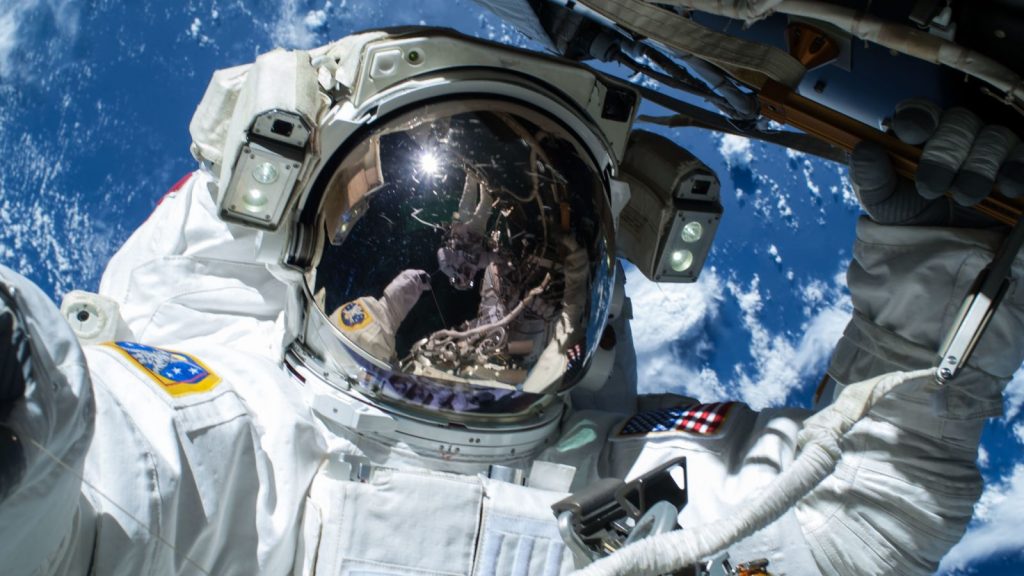In this post we discuss what astronauts can teach us about back pain and the effect of zero gravity on the muscular system.

If you’ve always wanted to grow a couple of inches you might consider space flight. Researchers regularly find that astronauts returning from space gain 2 inches in height.
This is due to something called spinal unloading in the gravity free environment. The curves of the spine literally flatten out causing a measurable height change.
Whilst this might seem attractive, you should be aware that on returning to Earth, 50% of astronauts suffer back pain and are 4 times more likely to suffer from a herniated disc compared to the rest of the population. Ouch.
Scientists believe the reason for this is the atrophy (wasting) of the spinal muscles that occurs as a result of the gravity free environment.
What space flight teaches us about back pain
This is interesting for 2 reasons, firstly it shows how our muscular systems are the product of the forces we are subjected to on a daily basis.
Our muscles either grow or waste according to the stimulus they receive. Space flight is perhaps the most dramatic example of ‘if you don’t use it you lose it’.
Secondly, the relationship between muscle weakness and back pain is a fascinating one. Much is written about the multifactorial nature of chronic pain in particular. Whilst it’s certainly a complicated subject, there seems to be a reliable connection between muscle weakness and the appearance of pain.
People who suffer with back pain routinely score poorly on muscle endurance tests of the lumbar spine muscles.
Rather like the chicken and egg causality paradox however, it’s difficulty to know whether this is because they’ve had back pain in the past, or whether it was the weakness that set them up for the pain later on.
The experience of astronauts would suggest it’s the later.
Either way, if you suffer with back pain getting stronger is a good idea. Not just in the local muscles around the spine but more broadly speaking as well.
For a discussion on the best exercise for back pain go here.